Our Providers
Trauma Healing Northwest practitioners are licensed mental health professionals trained in specialized treatments for trauma and stress related disorders.
Therapists
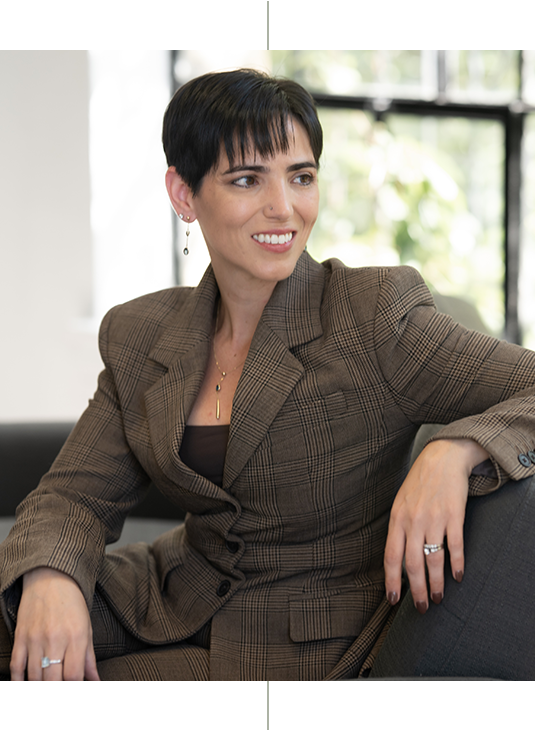
Lynae Nelson, PhD., LPC, LCPC, LMHC
Personally:
My name is Lynae and my roots run deep in the beautiful Pacific Northwest. I care deeply for my community and love being able to do my part to help those with whom I share this beautiful place we call home. When I am not working, I am kept busy with four children, all teenagers and older, our four pets (we have two sassy Siamese cats and two small dogs). I enjoy spending time with my family, especially when we can do outdoor activities and travel together. My other hobbies include drawing, routine exercise, keeping my mind active with leaning, and my heart active with community service. I am currently in the process of achieving my Ph.D. in Psychology with a concentration in research and afterwards plan to become certified in scuba diving and plan to learn sign language. I engage in community service mostly with Pacific Northwest Adult and Teen Challenge and with other opportunities through my local church.
Professionally:
I believe that we all experience struggles in life and that these can contribute to stress, anxiety, depression, and trauma, and otherwise limit us. So often, these struggles can impact our relationships, career, and long-term well-being in ways that are sometimes difficult to manage. When this is our experience, I believe that it is beneficial to engage in therapy to work through the symptoms and impacts of trauma and stress and to heal from them. I take a positive approach to therapy and utilize proven strategies to help clients achieve their goals in a way and at a pace that works best for them. I commonly utilize EMDR, and Cognitive Behavioral Therapy approaches, like exposure therapy in conjunction with traditional and systemic psychotherapies like Solution Focused Therapy, Narrative Therapy, Gestalt Therapy, and Person Centered Therapy. If you are considering therapy for the first time or are wondering if is time to reengage in therapy, I would love the opportunity to connect with you see how I can support you in accomplishing your goals.
Area of Interest
I am drawn to working with those who work in helping or high stress/executive positions. Research demonstrates these roles have a high correlation with trauma and/or stress related disorders and often are the least likely to seek out therapeutic support. As a result, some of the highest levels of stress, depression, and untreated trauma are seen in those who are helpers and or leaders. I believe that in order to help and lead well, we must be well. Therefore, I focus my work to serve:
-
Veterans and active duty military
-
Psychologists, counselors, social workers, and other clinical professional helpers
-
Pastors, pastoral staff members, and other clergy
-
Medical providers including surgeons, doctors, nurses, and other medical professionals
-
First responders including police officers, fire fighters, EMT, and others
-
Professionals with other high stress positions such as professional athletes, small business owners, and executive team members
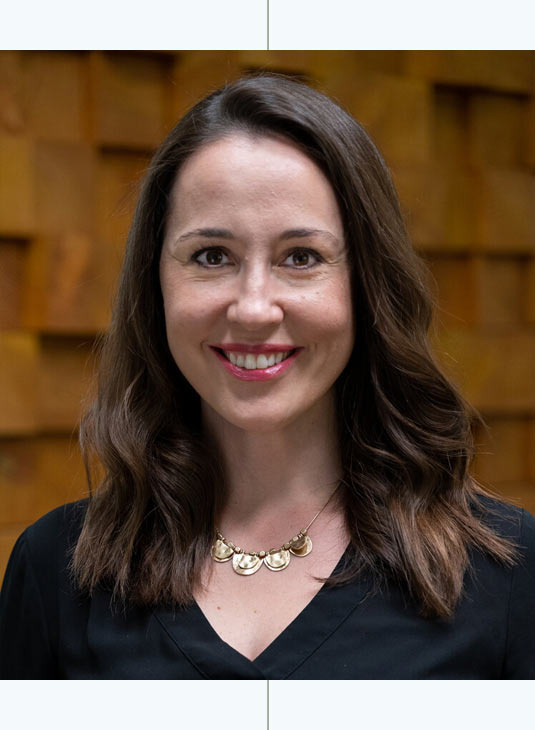
Lisa Gascho, MSW, LCSW
Personally:
My name is Lisa and I grew up in Oregon and lived here into early adulthood. I’ve recently returned with my husband and two children, and am enjoying being near extended family again as well as being back in our beautiful state. In my free time I can be found having dance parties with my kids, hiking, baking, or wandering in a bookstore or library. When able, I love to travel as a way to broaden my understanding of the world and of the people who inhabit the places I visit.
I decided to become a therapist when I was still in high school with no more than the thought of “Well, I like helping people.” Though there are many careers and paths to helping others, the decision to be a therapist stuck with me, and I’ve now been a licensed psychotherapist since 2010.
Professionally:
I’ve learned that whatever a person’s life experiences have been, they can be experienced as a crisis or a traumatic event when it exceeds the person’s capacity to cope. It is there where I like to come alongside and help the person sort out what is needed in order to heal and move forward in their life.
As a therapist, I take a strengths-based approach with clients by not only working to address the issues they are seeking treatment for, but also helping them to recognize and access their own resilience, abilities, and resources; using these to address present-day challenges that they face.
I utilize various therapeutic modalities depending on the person’s needs and goals for treatment, which can include EMDR, Narrative Therapy, Acceptance and Commitment Therapy, Dialectical Behavioral Therapy, Cognitive Behavioral Therapy, and others. My goal is to help people work through whatever pain they’re experiencing so that they can live in a manner that better supports their well-being and aligns with their values. This can look like helping a person process difficult life experiences in a more effective way in order to reduce the impact to them, teaching skills to grow the person’s ability to soothe and center themselves when feeling emotionally dysregulated or disconnected, and empathically challenging negative beliefs about themselves that do not reflect the full reality of who they are and their worth.
Area of Interest
I commonly work with people who have had trauma and losses in early life, sexual trauma, and those who struggle with codependent dynamics in relationships in which healthy boundaries are not maintained. I treat adults across the lifespan, but most often work with young adults, women, and those in the helping professions such as teachers and social workers.
Current areas of further interest and learning for me are the impacts of intergenerational trauma, historical trauma, and racialized trauma on a person. I’m also drawn to therapies in addition to EMDR that address the impact of trauma to both mind and body such as Sensorimotor Psychotherapy, Internal Family Systems Therapy, and Polyvagal Theory.
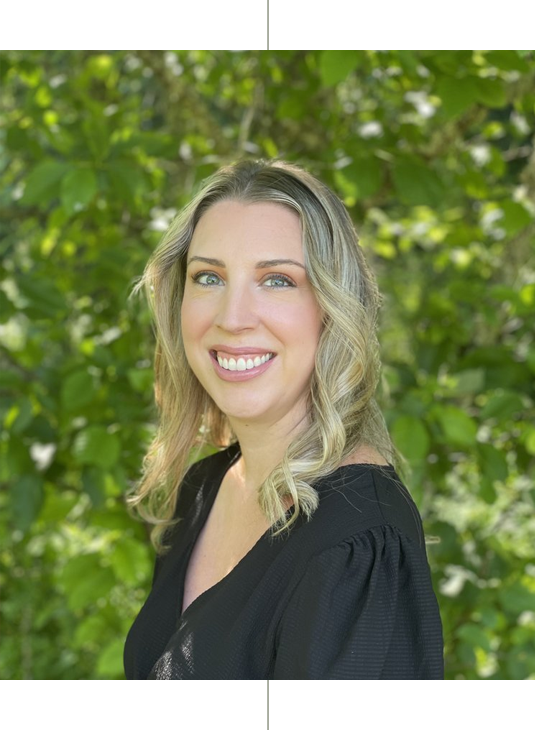
Natalie Harper, MA, LPC
Personally:
My name is Natalie, and I was born and raised in Northern California. I have always loved the Pacific Northwest and decided to come here for graduate school. While attending my master’s program at Pacific University I met my husband and have been in the Portland area ever since. I love to travel, and we had the opportunity to move to Italy for a year following graduation. We now have two wonderful children who I love to spend my time with. We explore parks, nature trails, and make art. For self-care I love to read, garden, and socialize with friends. Joining two of these activities has me involved with a monthly book club that I love.
Professionally:
In my career I have worked in residential settings, outpatient, and Partial Hospitalization/Intensive Outpatient levels of care. I take a Person-Centered approach to therapy, so I act as a support and guide through the healing process. To work through unresolved trauma, I utilize Eye Movement Desensitization and Reprocessing Therapy (EMDR), Cognitive Behavioral Therapy (CBT), and Mindfulness practices. These are evidenced-based tools that will allow you to become un-stuck and move forward with your goals. I also have a CADC-I and specialize in substance use disorders or co-occurring disorders. If you use alcohol or substances to cope with trauma or uncomfortable feelings, I will provide additional coping skills for relapse prevention.
Area of Interest
I have a passion for this work and supporting people who have motivation to heal. Some areas that I am drawn to are pregnancy/birth trauma, childhood trauma, co-occurring disorders, depression, and stress related disorders. Some areas of focus are working with mothers, or those struggling with infertility, because I understand the isolation and loneliness that come with trauma/loss during this time. There are many resources and supports out there! I also am an LGBTQIA+ ally and create a safe place to be open and share.
The choice to start therapy and sit with the emotions that come with it is a very brave act. You have already taken your first step toward healing by researching possible providers and treatment. I see therapy as a collaborative process and will always work alongside you. Whether you have engaged in therapy in the past or if this is your first time, I would love the opportunity to speak with you and answer any questions.
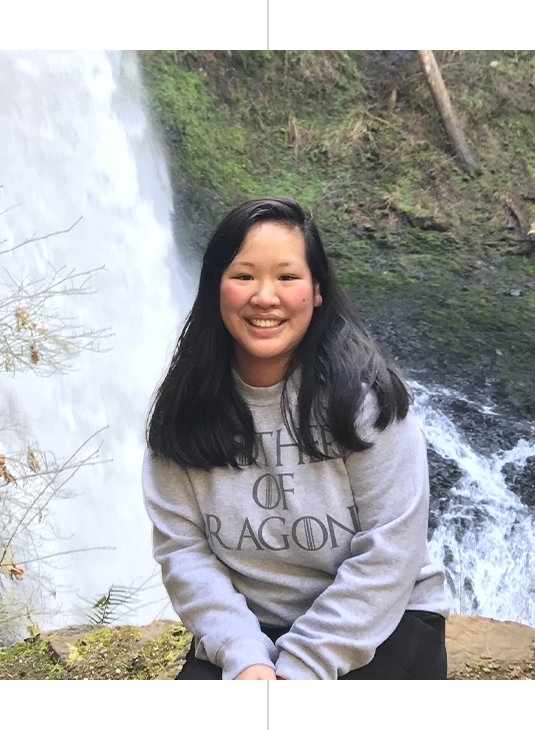
Jessica Blodget, M.A., LPC
Personally:
My name is Jess and I lived in Nebraska, Iowa and eventually, my family settled down in Oklahoma. It had always been my dream to live in the Pacific Northwest. I graduated with my master’s in counseling from Oklahoma State University and moved to Oregon in the summer of 2020. When not at work, I’m outside hiking, paddle boarding, or trying new restaurants/ food carts with friends or family. My other hobbies include reading, knitting, crocheting and embroidery. I’m an animal lover and I’ve had cats, dogs, a bird, goats, chickens, ducks, and even lived on an alpaca farm. Right now, I only have one cat (Zelda) and she keeps me quite busy. She loves sitting out on the balcony watching the birds during the day and catching moths at night.
Professionally:
I view therapy as a collaborative process and that the client is the expert in their own life. I work with the client to create an individualized treatment plan to help them achieve their goals. I believe everyone experiences stressors in life that contribute to anxiety, depression, and PTSD. I take a Person-Centered approach to therapy to help support and guide the client through the process of healing through their unresolved trauma. To work through unresolved trauma, I utilize Eye Movement Desensitization and Reprocessing Therapy (EMDR), Cognitive Behavioral Therapy, and Interpersonal Therapy. I am an adoption-competent therapist who graduated from the accredited Training for Adoption Competency.
Area of Interest
As an adoptee, I have a passion for working with individuals within the adoption kinship network (e.g., adoptees, birth parents, adopted parents, and extended family). While most adoptive parents are successful in parenting their children, there are complex emotional issues that are primary contributors to family stressors in post-adoption. Parents may not be prepared or understand the implications of children’s adverse experiences or that adoption is not an event; it is a lifelong process with an intergenerational impact. Growing up, I observed mental health services providers typically receive very limited, if any, training on adoption issues. I believe access to adoption-competent mental health services is a critical factor in the promotion of child and family well-being and the success of their adoption.

Patricia Martinez, MSW, LCSW
Personally:
I am a Mexican American of indigenous roots born and raised in Oregon. Although I love my hometown, I delight in the sun, and I enjoy traveling across the US and other countries. Especially those with beautiful beaches and hot climates. Aside for the love I have for traveling, I enjoy being a “Tia” (Auntie) to my 15 nieces and nephews. They keep me quite entertained, and I’ve never had to have my own children yet! Additionally, dance has been an uplifting practice for me, and I’ve been part of a Latin dance team since 2019, where I have performed on stage in a few states across the US. I also enjoy other practices such as Bikram yoga, hiking, singing, and boxing.
Life is a masterpiece and living with zest, and experiencing as much as my heart desires is the greatest art I have created.
Professionally:
I obtained a master’s in social work with a clinical focus in 2014 from Portland State University. The foundation of my work is developed by attachment, family systems, empowerment, anti-oppressive, trauma informed, and psychodynamic theories. I utilize a holistic approach that incorporates spiritual, cultural, racial, and mind/body practices unique to everyone. Some traditional modalities I use in sessions are, person-centered, emotional processing, CBT (Cognitive Behavioral therapy), DBT (Dialectical Behavioral therapy), mindfulness, expressive therapies, narrative, and solution focused. I will be completing my training and certification in EMDR in the next couple months, and I will be able to offer this as well. Throughout my career I have supported individuals in outpatient behavioral health agencies, educational settings, and several business and health/environmental establishments across the Willamette valley and surrounding areas.
Area of Interest
As a bilingual/bicultural clinician I have a deep understanding for individuals’ lived experiences and the narratives they have internalized. I believe these experiences and impactful events can shape an individual’s perception of self, worldview, and influence how they develop and sustain relationships. At times, these internal narratives may be hurtful. Thus, I believe people have within them the power to make these shifts and with guidance develop new narratives that can empower their current and future life stages. I have been able to guide individuals within the following areas: PTSD, Anxiety, Depression, racial trauma and identity, generational and historical trauma, grief and loss, life transitions, LGBTQIA+, and other specific trauma stories. Specifically, I have worked with children, adolescents, adults, families, aging adults, BIPOC men and women, refugees/asylum seekers, medical providers, administrative/HR positions, clinical professionals, and educational professionals from all institutions.
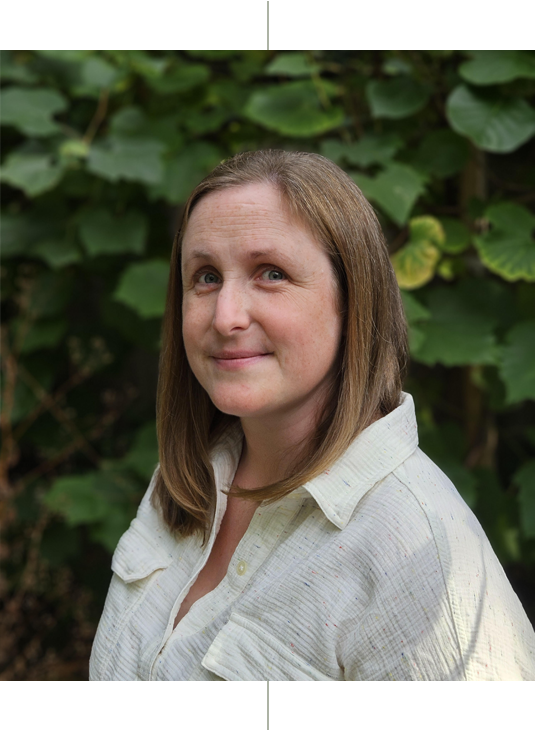
Anne Carter, MSW, LCSW
Personally:
My name is Anne and I bring compassion, warmth, and patience to the therapy room. I grew up in New Hampshire and spent a decade in the Midwest where I earned my MSW at Loyola University Chicago before settling in Portland with my family. I enjoy spending time outside with my husband and two young kids finding new parks and food carts. On longer excursions, I love exploring spots along the coast or along the Columbia River Gorge. I try to seek joy in the small moments whether it be finding a funky coffee shop, reading with my toddler, or standing outside taking in the sunshine (or raindrops!).
I am licensed in Oregon and Illinois, and can provide telehealth to clients in Illinois.
Professionally:
Over the past decade I have worked in a range of environments including treatment centers, community mental health, and outpatient private practice settings. I provide trauma focused supervision to new clinicians. My background in adventure therapy influences my approach, leading me to integrate metaphor work and honor the healing power of nature in therapy. I am EMDR trained and have additional certification in working in substance abuse. My therapeutic approach is rooted in a psychodynamic framework, prioritizing person-centered care.
In addition to academic credentials and clinical training, I believe it is crucial for therapists to engage in their own inner work to provide the best care to clients. This philosophy underpins my dedication to authentic and empathetic therapeutic relationships.
Area of Interest
I work with individuals who might feel like they need to hide pieces of themselves from friends or family to avoid conflict or to fit in. Or they might feel stuck and frustrated, unsure of why they continue with similar cycles. I empower clients to release shame and strengthen their authentic voice.
Clinical interests include addiction, posttraumatic healing, eating disorders, codependence, and relationship challenges. In addition, I support clients who grew up in family systems of dysfunction or addiction, helping them navigate intentional or unintentional harm. Recovery is possible and we cannot heal alone.
Neurofeedback Tech
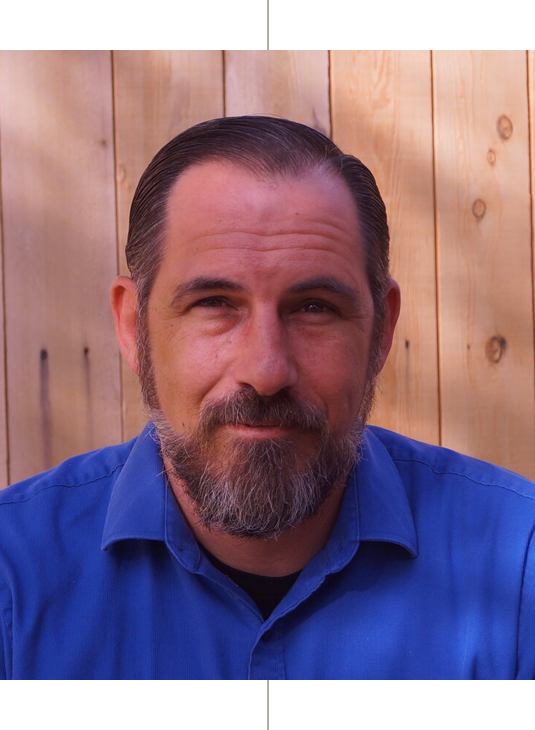
John Elliott, BCN
Personally:
Hello, I’m John. Though I was born in Arizona, I grew up on a dairy farm in the Willamette Valley region. I joined the Army a few years after high school and had many fortunate opportunities around the world. I have been drawn back to the place where I grew up and am currently working on building my own family farm.
In my spare time I enjoy traveling, hiking and camping with my family, playing the guitar, listening to blues and classic rock deep dives, self-sufficient living and strategy games.
Professionally:
I enlisted in the army in 2000 and served as a combat medic and mental health specialist. I first learned about neurofeedback early in my military career and it quickly became my area of focus. I am board certified through the BCIA and have spent the last 10 years working with soldiers, professional atheletes, and those working through attention deficits, PTSD, traumatic brain injury and addictions. For me, the possibilities of neurofeedback, and where it may lead us in our understanding of ourselves, is endless.
Area of Interest
PTSD, TBI and ADD/ADHD have been where I have honed most of my focus. In the idea of Neurofeedback, all of these revolve around your brains ability to adapt and grow new neural pathways. This is also known as neuroplasticity. Through time and training, using our brains natural instinct to learn and grow, we can train the brain to regulate and improve concentration and promote general relaxation which can help us to better regulate when coping with stressful events.
